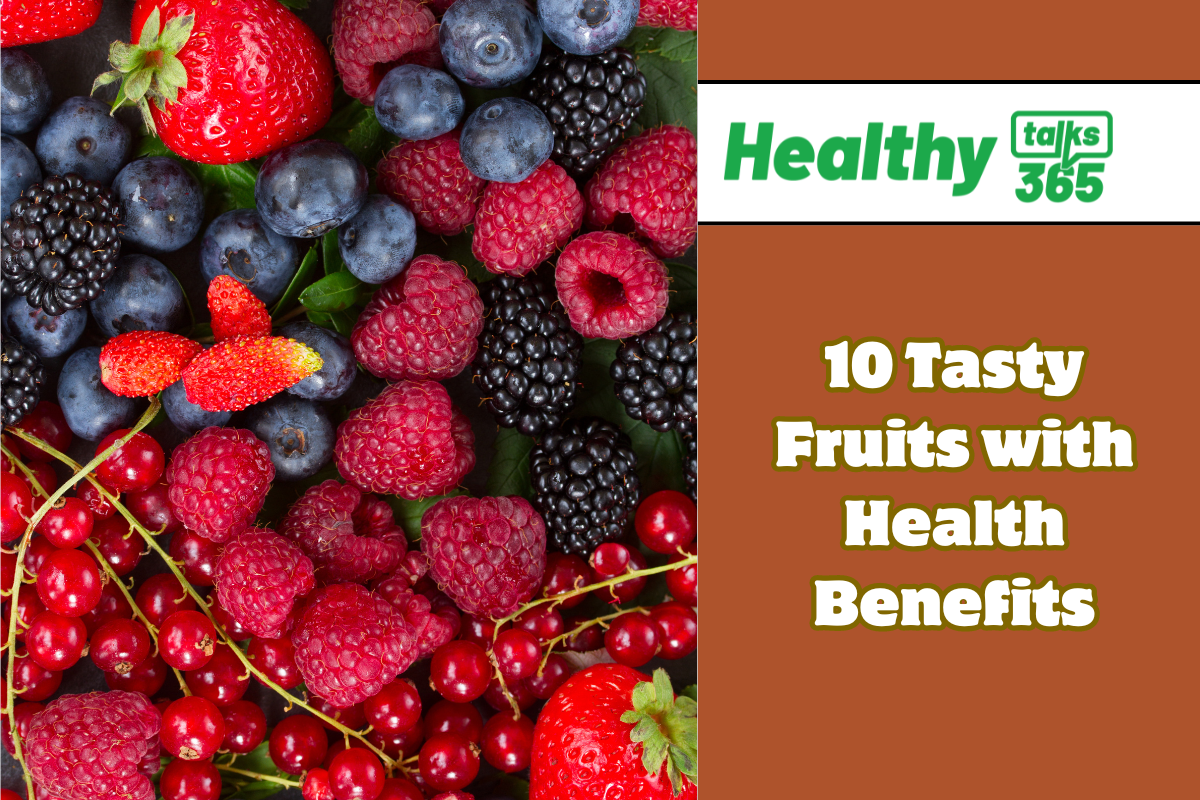10 Tasty Fruits with Health Benefits
1. Berries are rich in antioxidants
Berries, such as strawberries, blueberries, raspberries, and blackberries, are abundant in antioxidants, including anthocyanins, flavonoids, and vitamin C. These compounds help combat oxidative stress, reduce inflammation, and protect cells from damage caused by free radicals. Incorporating a variety of berries into your diet can support overall health and may help reduce the risk of chronic diseases such as heart disease, cancer, and neurodegenerative disorders.
Read Also:
Healthy Foods For Keeping Healthy Weight In Winters Cold
2. Apples are a good source of fibre and vitamin C
Apples are not only delicious but also packed with essential nutrients. They are an excellent source of dietary fiber, particularly soluble fiber, which helps promote digestive health, regulate blood sugar levels, and support weight management. Additionally, apples provide a significant amount of vitamin C, an antioxidant vitamin that plays a key role in immune function, collagen synthesis, and wound healing. Eating apples regularly can contribute to overall well-being and may reduce the risk of certain diseases.
3. Oranges boost immune system
Oranges are renowned for their high vitamin C content, which plays a vital role in supporting immune function and protecting against infections. Vitamin C stimulates the production and function of white blood cells, which are responsible for fighting off pathogens and foreign invaders. Including oranges in your diet can help strengthen the immune system, reduce the duration and severity of colds and flu, and promote overall health and vitality.

4. Bananas are important for heart health and muscle function
Bananas are a nutrient-dense fruit packed with potassium, an essential mineral that plays a crucial role in heart health, muscle function, and nerve transmission. Potassium helps regulate blood pressure, maintain fluid balance, and support proper muscle contraction and relaxation. Consuming bananas regularly can help lower blood pressure, reduce the risk of stroke and heart disease, and promote optimal muscle performance and recovery.
5. Pineapple improves digestion
Pineapple contains bromelain, a mixture of enzymes known for their digestive properties. Bromelain helps break down proteins in the digestive tract, facilitating digestion and nutrient absorption. Consuming pineapple or drinking pineapple juice may help alleviate digestive discomfort, reduce bloating, and support overall digestive health. Additionally, pineapple is rich in fiber and water, both of which promote regularity and prevent constipation.
6. Kiwi is good for eye health
Kiwi is a nutrient-rich fruit that provides a wide range of health benefits, including support for eye health. Kiwis are packed with vitamin C, vitamin E, lutein, and zeaxanthin, all of which play key roles in maintaining vision and protecting against age-related eye conditions such as cataracts and macular degeneration. Adding kiwi to your diet can help support healthy vision and promote overall eye health.
7. Mango helps in digestion
Mangoes are not only delicious but also beneficial for digestive health. They are rich in dietary fiber, particularly soluble fiber, which helps promote regular bowel movements, prevent constipation, and support a healthy gut microbiome. Additionally, mangoes contain enzymes such as amylases, which aid in carbohydrate digestion, and dietary antioxidants, which help reduce inflammation and protect against digestive disorders.

8. Papaya aisa stomach related problems
Papaya contains an enzyme called papain, which has been shown to aid in digestion by breaking down proteins into smaller peptides and amino acids. This digestive enzyme can help alleviate symptoms of indigestion, bloating, and gas, making papaya a soothing and therapeutic fruit for individuals with stomach-related problems. Additionally, papaya is rich in fiber, vitamins, and antioxidants, which further support digestive health and overall well-being.
Read Also:
9. Grapes are high in antioxidants
Grapes are a rich source of antioxidants, including resveratrol, flavonoids, and vitamin C, which help protect cells from oxidative damage and reduce the risk of chronic diseases such as heart disease, cancer, and diabetes. The polyphenols found in grapes have anti-inflammatory and immune-boosting properties, while the fiber content supports digestive health and weight management. Incorporating grapes into your diet can provide a wide range of health benefits and contribute to overall wellness.
10. Watermelon is low in calories and high in water
Watermelon is a refreshing and hydrating fruit that is low in calories and high in water content, making it an excellent choice for weight management and hydration. With its high water content, watermelon helps keep you hydrated and feeling full, making it a satisfying snack or addition to meals. Additionally, watermelon is rich in vitamins A and C, antioxidants, and amino acids, which support immune function, skin health, and overall well-being. Including watermelon in your diet can help you stay hydrated, curb cravings, and promote optimal health.




